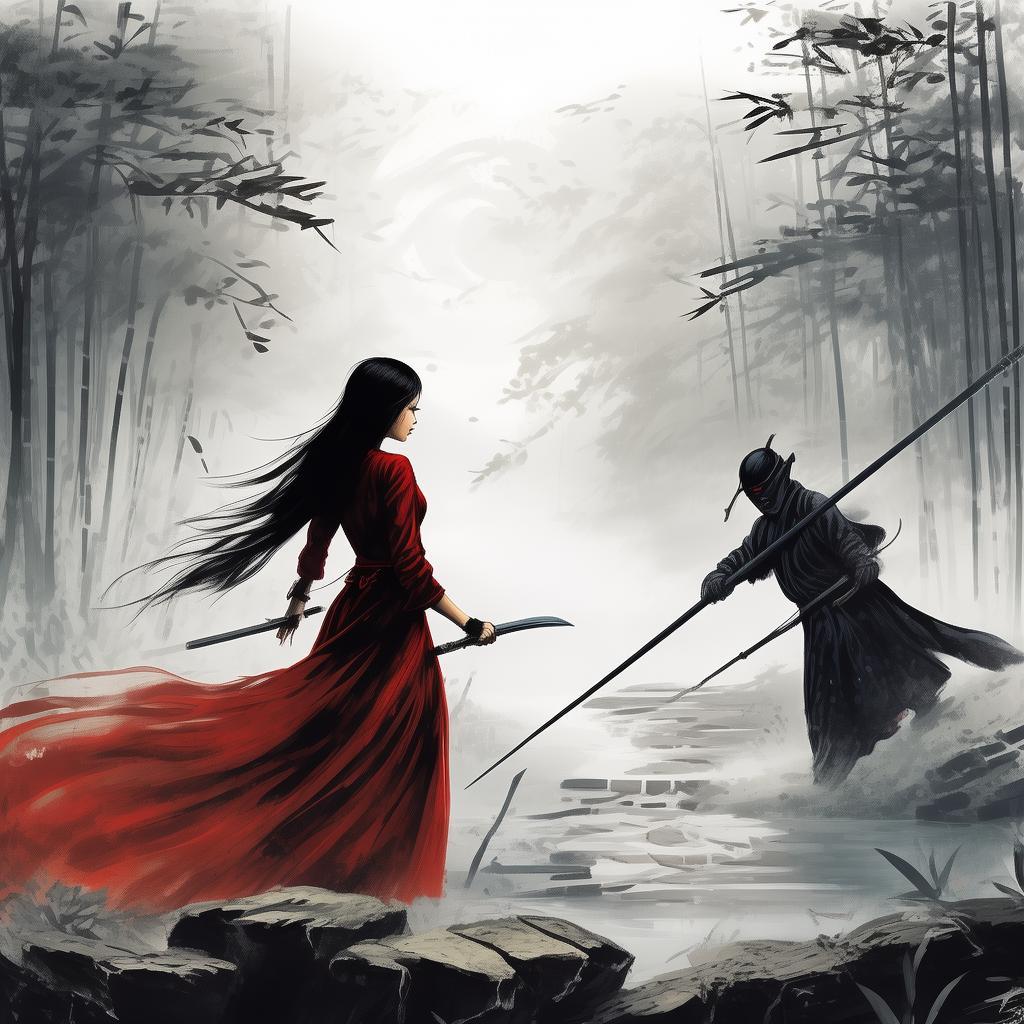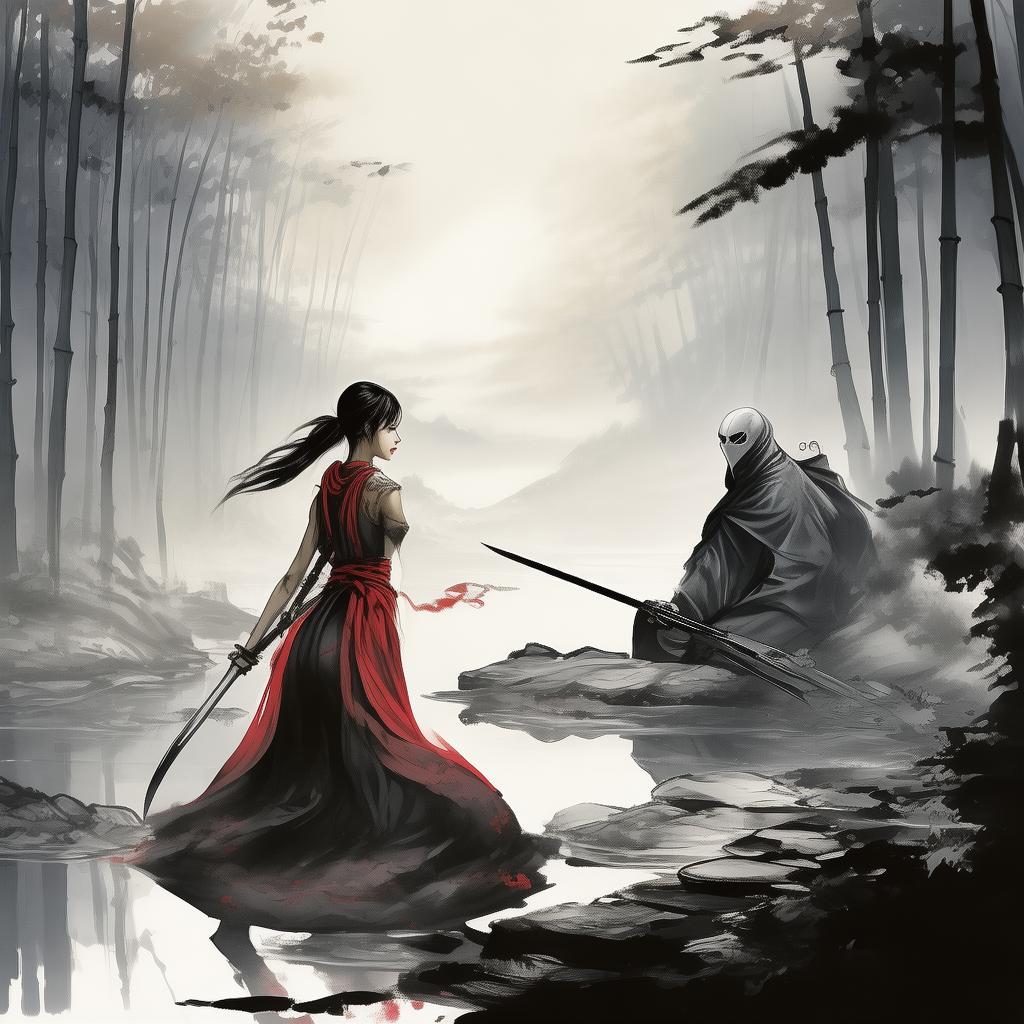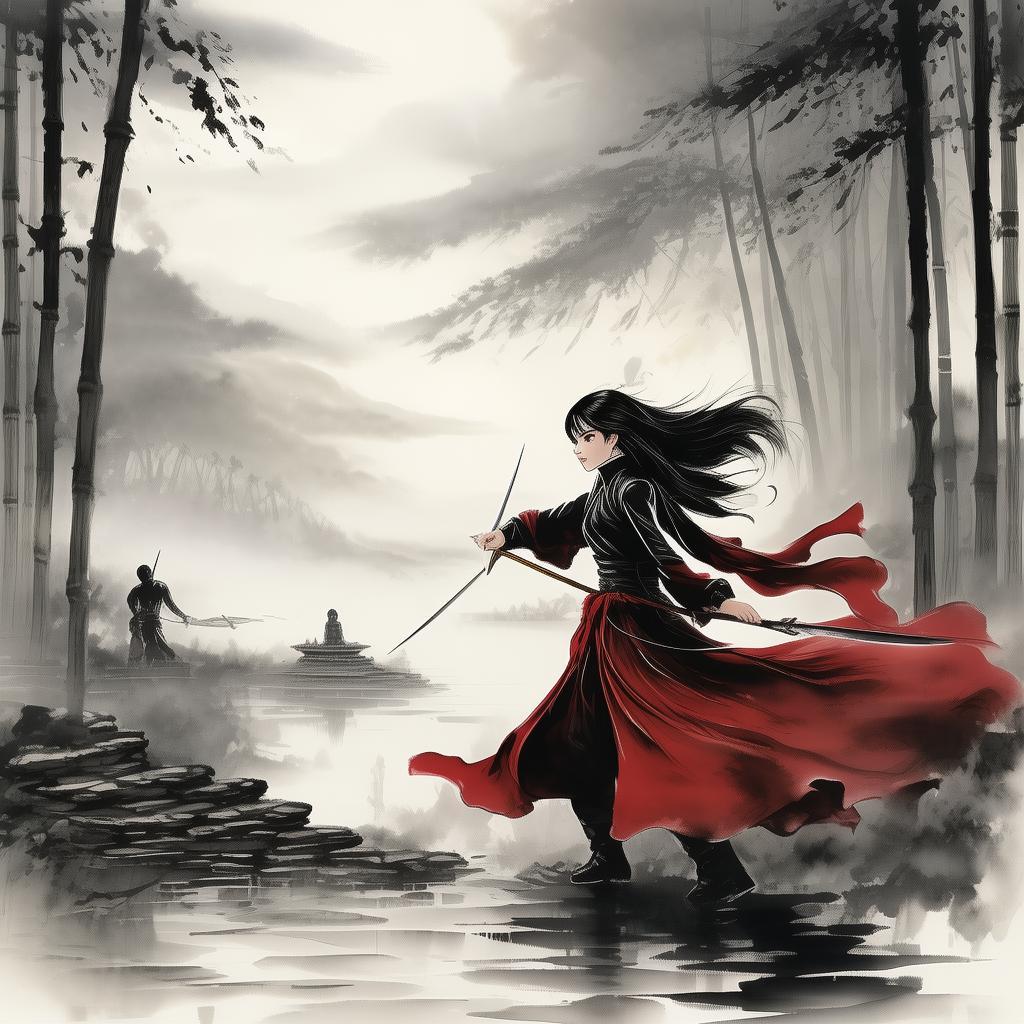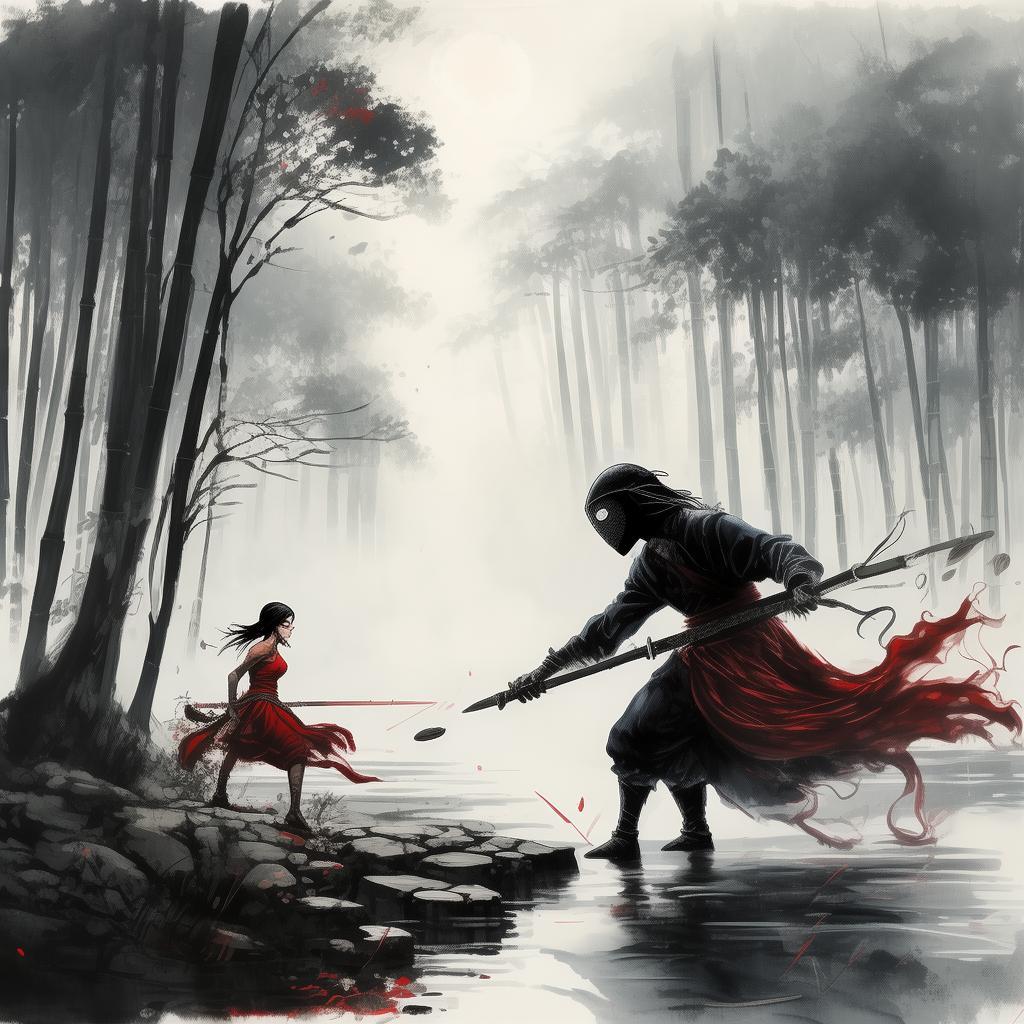The Emperor's Midnight Serenade: A Martial Arts Comedy
In the ancient kingdom of Jing, where the air was thick with the scent of blooming peonies and the hum of martial arts, there lived an Emperor known for his love of the arts and his peculiar sense of humor. His name was Ming, and his court was a tapestry of colorful characters, each with their own unique talent and idiosyncrasies.
One moonlit night, as the silver glow bathed the palace in a serene glow, Emperor Ming decided to serenade his court with a lute. The music was enchanting, but it was the Emperor's own comedic delivery that had the court in stitches. The jesters, who were usually the only ones allowed to jest, were speechless, their laughter bubbling up from their bellies and echoing through the grand hall.
However, as the night wore on, the Emperor's lute playing turned into a midnight serenade that had the court in an uproar. The jesters, in a fit of inspiration, decided to stage a comedy play that night, hoping to outdo the Emperor's performance. Little did they know, their play would set off a series of events that would change the fate of the kingdom.
The Emperor, taking a keen interest in the jesters' play, decreed that it would be the grand entertainment for the entire kingdom. The jesters, though thrilled, soon realized that their play was not just a simple comedy but a comedy with a twist of martial arts.
The plot of the play revolved around a fictional martial arts master named Li, who sought to avenge his master's death. However, Li's path to revenge was fraught with humor, as he was constantly thwarted by his own clumsy nature and the cunning of his enemies. The Emperor, a master of martial arts himself, could not help but laugh at the antics of Li and his companions.
As the play progressed, the jesters' comedy began to intertwine with the martial arts sequences, creating a blend that was both entertaining and highly competitive. The audience, which included martial arts masters from all over the kingdom, were amazed at the skillful display of techniques and the comedic timing of the actors.
Amidst the laughter and the martial arts spectacle, a young girl named Ying entered the scene. She was a skilled martial artist in her own right, and she had come to the play hoping to impress the Emperor with her prowess. However, she soon found herself entangled in the chaos of the play, her skills being put to the test by the jesters and the martial arts masters.

The climax of the play arrived when the Emperor himself stepped onto the stage. He challenged the martial arts masters to a friendly duel, and the jesters, seeing an opportunity to outdo the Emperor, decided to join in as well. The stage was set for a grand, comedic spectacle that would leave the audience in awe.
As the duel unfolded, with the Emperor and the jesters showcasing their martial arts techniques in a playful yet intense battle, Ying found herself in the midst of the chaos. She realized that the true essence of martial arts was not just about power and technique, but about humor, camaraderie, and the spirit of competition.
In the end, the play was a resounding success, with the Emperor declaring the jesters the winners. Ying, who had been a silent observer throughout the play, stepped forward to thank the Emperor and the jesters for their entertainment. She realized that the martial arts community was not as rigid and exclusive as she had once thought.
The Emperor's Midnight Serenade had not only brought laughter and joy to the kingdom but had also fostered a new spirit of camaraderie among the martial arts practitioners. The jesters had achieved what they had set out to do, and the Emperor had found a new appreciation for the art of comedy.
The play's success spread throughout the kingdom, and soon, martial arts and comedy became inseparable. The kingdom of Jing thrived, not just because of its martial prowess, but because of its ability to blend humor and the arts in a way that brought people together.
In the aftermath of the play, Ying and the Emperor formed a special bond, and together, they worked to promote the fusion of martial arts and comedy. The kingdom of Jing became a beacon of laughter and harmony, a place where the martial arts were practiced with joy and the jesters were revered as the true guardians of the spirit of the martial arts.
The Emperor's Midnight Serenade had become more than just a play; it was a legend, a tale that would be told for generations, a testament to the power of laughter, camaraderie, and the enduring spirit of the martial arts.
✨ Original Statement ✨
All articles published on this website (including but not limited to text, images, videos, and other content) are original or authorized for reposting and are protected by relevant laws. Without the explicit written permission of this website, no individual or organization may copy, modify, repost, or use the content for commercial purposes.
If you need to quote or cooperate, please contact this site for authorization. We reserve the right to pursue legal responsibility for any unauthorized use.
Hereby declared.









